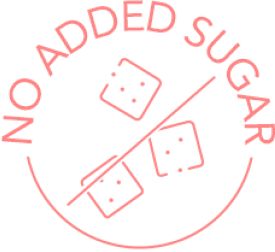Rosemary Hair Oil: The Best-Kept Secret for Hair Growth
You must have watched reels or scrolled through Instagram images of bloggers applying rosemary essential oil and showing their before-after results for hair growth. You are probably wondering, what's the hype about?

According to a study, researchers have scientifically proven rosemary essential oil to be as effective at stimulating hair growth as minoxidil - a medication for hair renewal. Like minoxidil, rosemary oil also works on the circulation/scalp massage principle.
However, natural rosemary oil has additional benefits, such as preventing premature greying, addressing itchy scalps, and strengthening hair more than over-the-counter medications. Let's explore this holy grail for hair in more detail.
What is Rosemary Essential Oil?
Rosemary (Rosmarinus officinalis L.) is a woody herb with a rich history. Native to the Mediterranean Sea and Himalayan Region, it has been trusted for centuries for its medicinal and healing properties. It's been a go-to for conditions like headaches, insomnia, and depression.
Rosemary essential oil is a concentrated liquid extracted from the leaves and flowering tops of the rosemary plant. It is obtained through steam distillation, which preserves the plant's beneficial compounds.
So, how does rosemary essential oil work its magic for hair growth? It's all thanks to carnosic acid - a chemical component found in the plant. When applied to the body, carnosic acid exhibits anti-inflammatory and antioxidant properties. This can help rejuvenate damaged nerves and tissues, leading to healthier hair growth.
Thus, massaging rosemary essential oil onto your scalp improves blood circulation, which can revive dead cells and provide nutrients to your hair so that it sheds less and grows more in a healthier scalp environment.
Key Benefits of Rosemary Essential Oil
- A regular application of rosemary essential oil can help strengthen hair follicles, reducing hair breakage and split ends.
- Its antimicrobial properties keep the scalp healthy by significantly reducing itching, dandruff and flaky scalp conditions.
- Rosemary essential oil is medically ascertained to slow down the greying process by promoting the health of the hair pigments.
- It helps balance the scalp's oil production, reducing greasiness without stripping the hair of necessary moisture.
- The oil improves blood flow to the scalp, promoting hair growth and potentially preventing hair loss.
- Rosemary essential oil can help add a natural shine and softness to the hair, improving its overall appearance and texture.
Hair Loss Types Addressed by Rosemary Essential Oil
- Androgenetic Alopecia (Pattern Baldness): Androgenetic alopecia is a common type of hair loss in men and women, wherein they experience a receding hairline and hair thinning at the crown area. Rosemary oil helps stimulate blood circulation to the affected areas and slows the progression of pattern baldness.
- Alopecia Areata: Alopecia areata is an autoimmune condition in which hair falls out in smaller, round patches. Rosemary essential oil's anti-inflammatory properties may help reduce scalp inflammation and promote hair regrowth.
- Telogen Effluvium: This condition is a temporary shedding phase triggered by stress, hormonal changes, or nutrient deficiencies. Rosemary oil replenishes your scalp with essential nutrients, making it suitable for your hair to thrive and grow.
- Traction Alopecia: Traction alopecia is hair fall due to repeated tension on the hair from tight hairstyles. Rosemary essential oil strengthens the hair follicles to stop hair fall.
- Poor Scalp Health: Rosemary oil's antimicrobial and anti-inflammatory properties can improve poor scalp conditions like dandruff and scalp infections and reduce hair fall.
- Postpartum Hair Fall: Many women experience hair shedding after childbirth due to hormonal changes. Applying rosemary oil can help stimulate hair growth during this period.
- PCOS Hair Fall: Women with PCOS or hormonal imbalances have high androgen levels, which cause hair thinning. While rosemary oil cannot directly help with balancing hormones, it can help reduce scalp DHT levels.
What is the best way to apply rosemary essential oil?
Rosemary is a powerful natural ingredient. It is advisable to always apply it with carrier oil, such as coconut oil, jojoba oil, argan oil, or vitamin E. Does that seem like a hassle to you? Don't worry - we have Rooting For You hair oil.
Rooting For You is a potent, effective, and 100% natural hair oil enriched with rosemary essential oil, coconut oil, jojoba oil, sweet almond, Brahmi, pumpkin seeds, vitamin E, and more
You can safely apply this concoction once or twice a week for 2-3 hours and watch your hair grow stronger and shiner in under 90 days.






